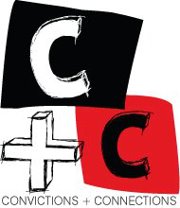ATF 2011 – Good morning Friday!
- September 16th, 2011
- Posted in ATF 2011
- Write comment

Last day of the Australian Theatre Forum – and as promised, Jane Howard and I are having a frock off… She’s in yellow and I’m in blue… It’s a lovely Brisbane day and it’s a big day ahead.
I do think that perhaps collectively there is a little bit of sogginess around the Forum. There have been a LOT of conversations, collisions, confrontations and connections made. A LOT of presentations. A LOT of everything. Infact I feel a little punch drunk – and there are a few points of irritation – not enough breathing and thinking space to digest and regurgitate all the ideas – and also the small sheepish gibes of “you’re not going to blog about this are you?” in heated, wine-fuelled conversations.
Last night was very interesting (and entertaining) – there was a particular conversation I had with Laura Scrivano, Katrina Douglas and Polly Rowe around the question of “can anyone write a brilliant play given enough time, training and resources.” I think that writing a play is only a part of the theatrical equation – the production has a lot to do with it. The direction and the acting also plays a part. I do think that it is more likely that a brilliant play comes from a place of support, than not.
If it is not true that playwriting can not be taught, the resources that PWA is pumping into their outreach program is in vain. I don’t think it is. I think the investment in playwrights is essential – and you never know who will write the next brilliant new Australian play.
Are some people more practiced? Yes.
Are some people more exposed to writing and theatre? Yes
Are some people more ambitious? Yes
Are some more articulate? Yes
But I don’t think if you are smart, articulate, practiced and exposed to theatre – you necessarily have a perspective that is interesting, innovative, fascinating. It helps.
Then there is the question of talent. “Can quality/talent be taught?”
I think great plays can be found in unlikely places, from unlikely people, from backgrounds you wouldn’t expect. Talent is a slippery idea. And half of “talent” in the arts is finding and inventing opportunities to practice.
If talent was the be all and end all – no award-wining playwright would ever write a turkey… someone who was inherently talented could never fail. I just don’t think that’s so. I think practice is everything.
I’m OK about being alone in this opinion.
Um… what’s the saying 10 percent talent 90 percent hard work or some such thing? Practical training is super super important. You can be good without it. But with it, you can be great. Virtuosity comes with training and practice, practice, practice.
I agree – i don’t think talent is something that just hits someone on the head. For me I think the best qualities a playwright (or any artist) can have are these things interest/curiosity in the outside world and practical experience and a highly attuned sense of intuition and nerves of steel and eternal optimism and being able to work with others.
Talent is not equally distributed, and no, it can’t be taught. If you don’t have the ability, no amount of training will make up for it. This is why I’m not an Olympic athlete. But talent MUST be nourished, and there are many ways of doing that.
Yes, 90 per cent of writing is hard labour. The other 90 per cent (who said I was a mathemetician?) is failure. You probably learn more from failure than you do from success. So every writer must ahve room to fail. As I said yesterday, the most exciting playwrights I’ve seen have emerged from collaborative companies, making work and putting it on whether or not anyone says they can. I think playwrights are crucially theatre workers, and unlike other writers they have to understand the form in three dimensions order to write for it. Otherwise, you’re better off with prose. That’s been true since Shakespeare. But surely the place to start for a playwright is reading lots of plays? Curiosity about the form as a literary art as well as a collaborative art, and curiosity about the ideas that drive it, from Aristotle to Brecht to Cixous to Etchells and beyond…
Alison – thank you – I utterly agree. I think failure is a very big part of the pursuit of excellence. I think some playwrights get trapped in the plays they think they should be writing – in a style they think they have been (or have imposed on themselves) – and this stops growth.
For me the rudiments of writing can be taught, but originality can’t be.
Talent can only develop though confidence. Confidence that comes from support.
I do not believe that we should as a community as one artist suggested once that we should “punish the weak.” I also don’t think we should be so quick to judge someone on their “talent” if they haven’t been given time, space, resources.
We need to help our artists to have confidence to explore, develop and excel.
And I believe confidence erupts in successfully facing failure, not just celebrating success.